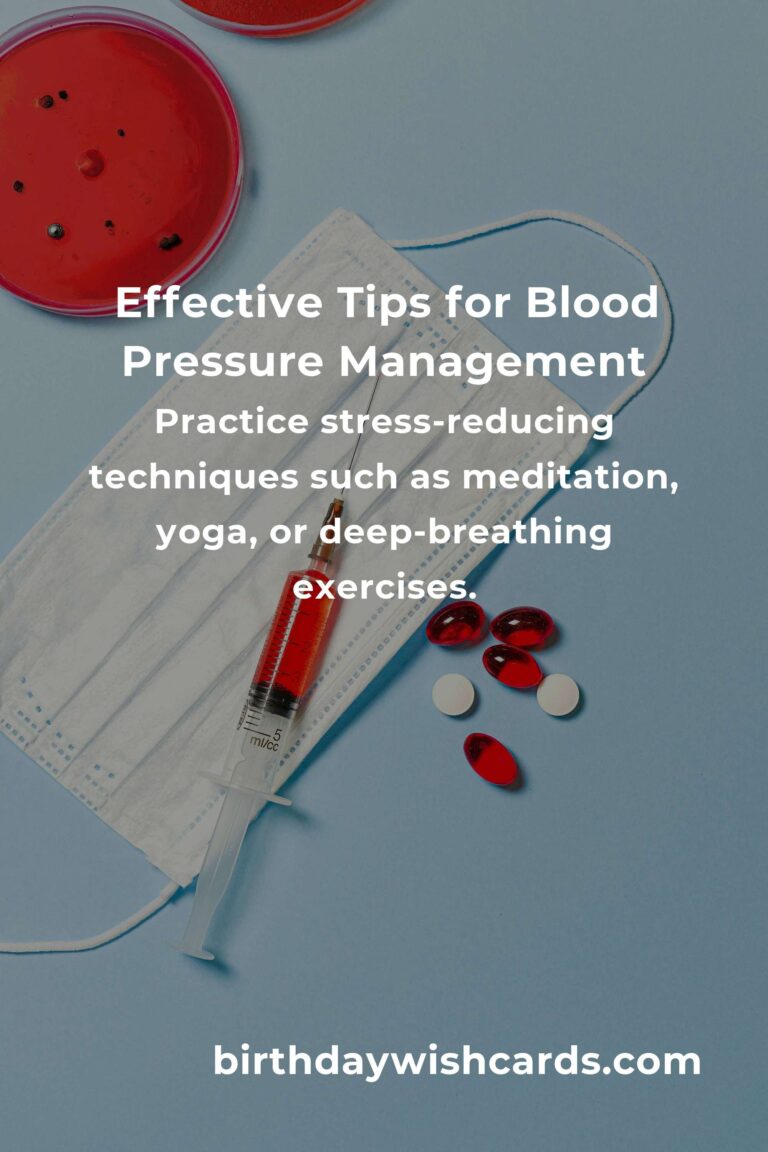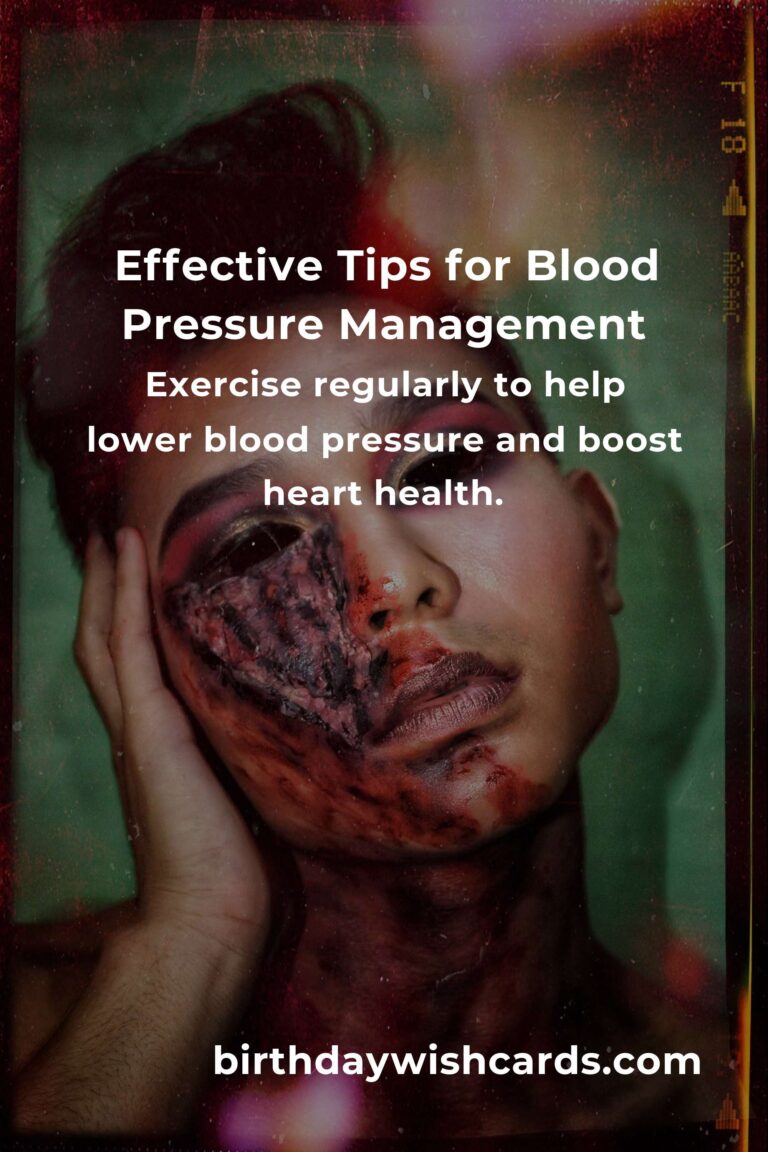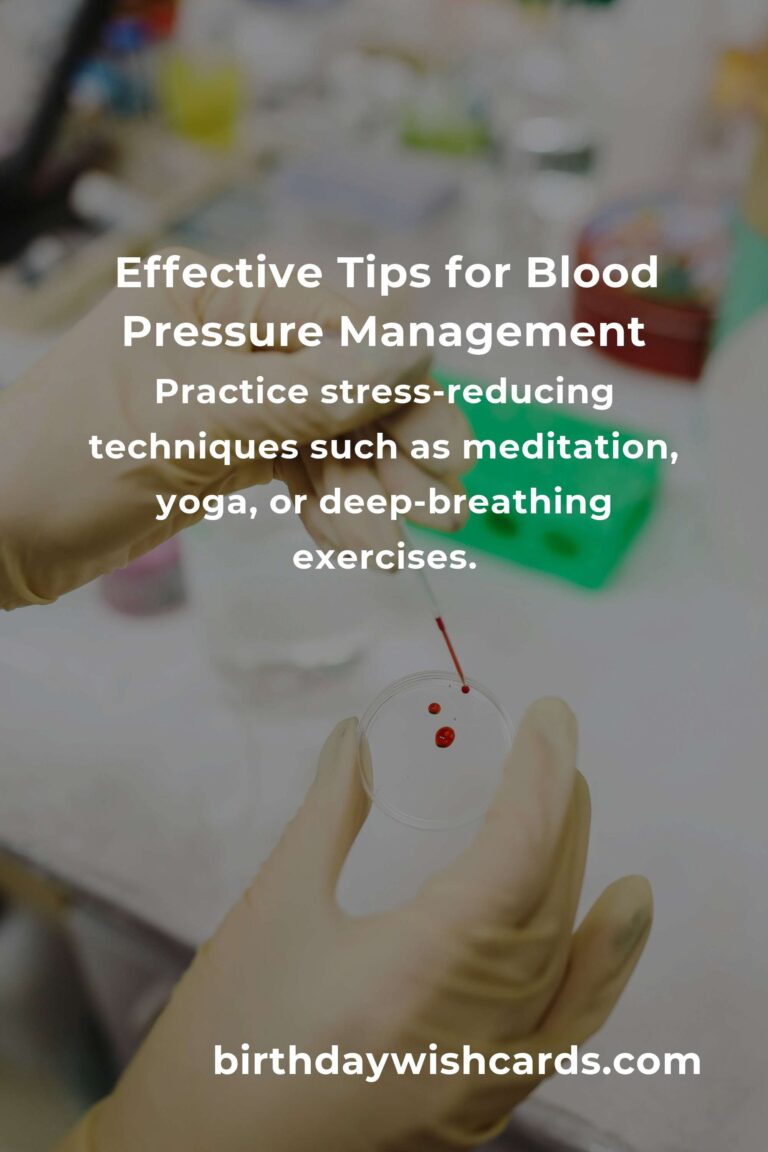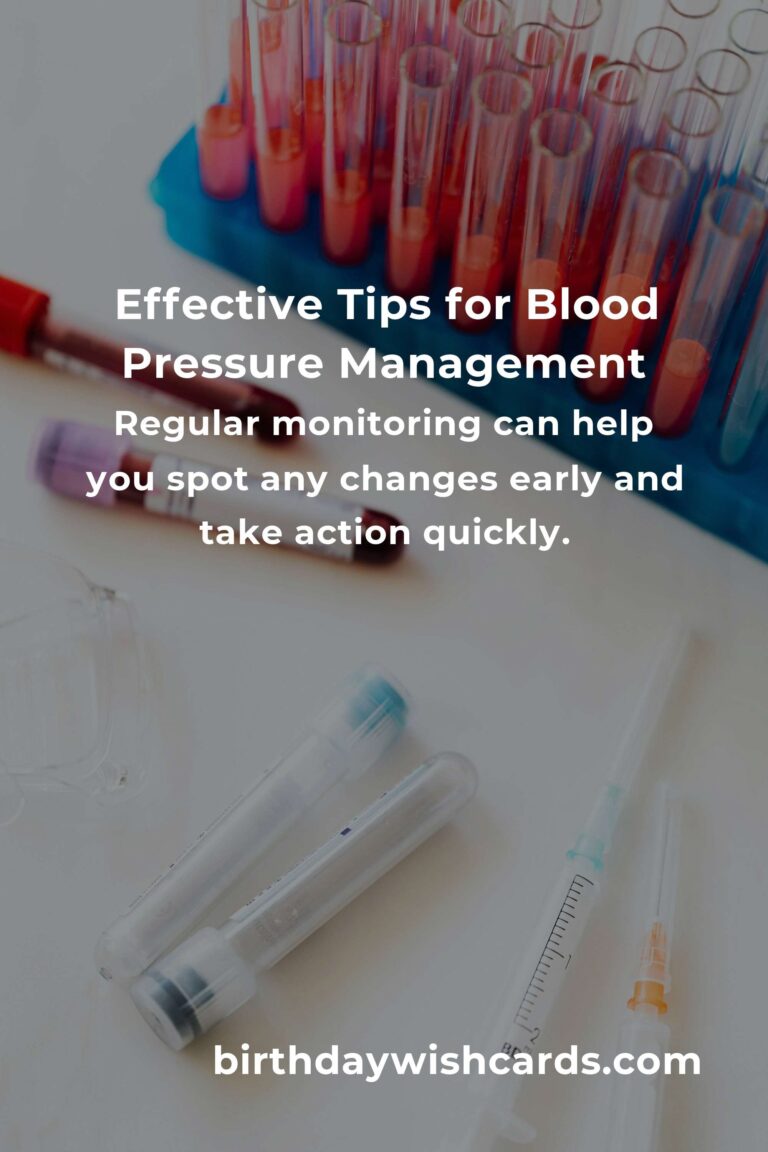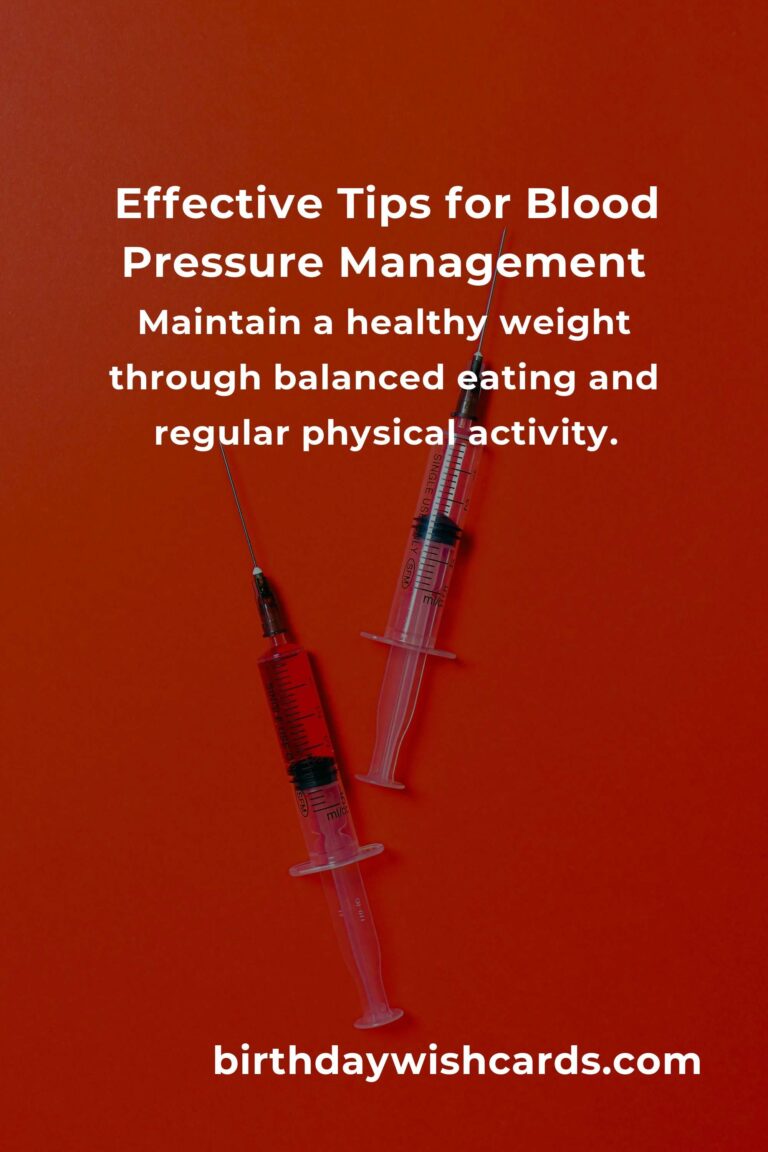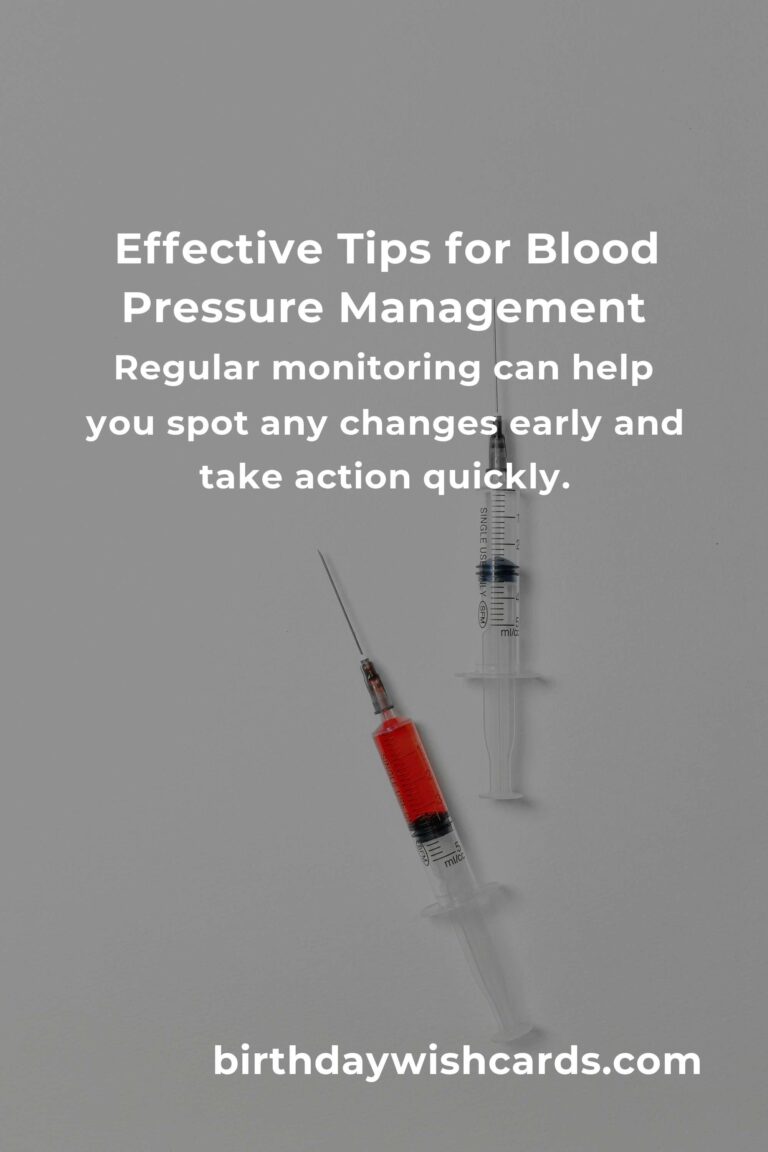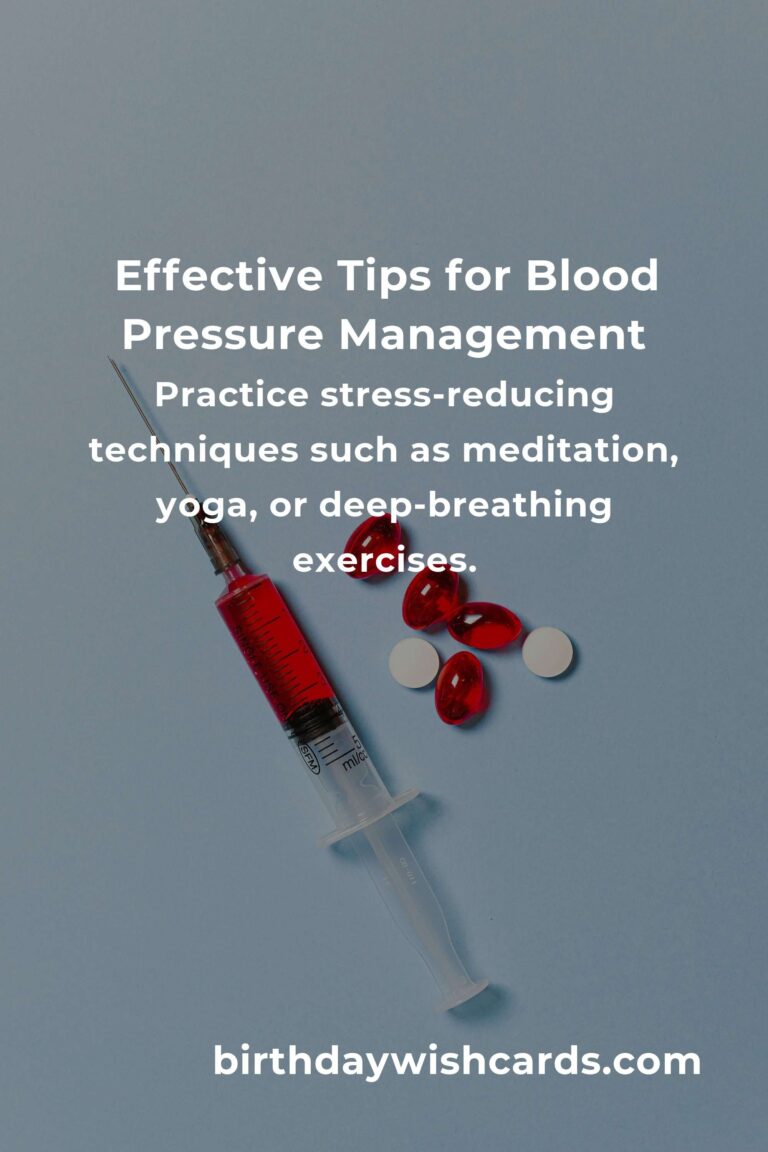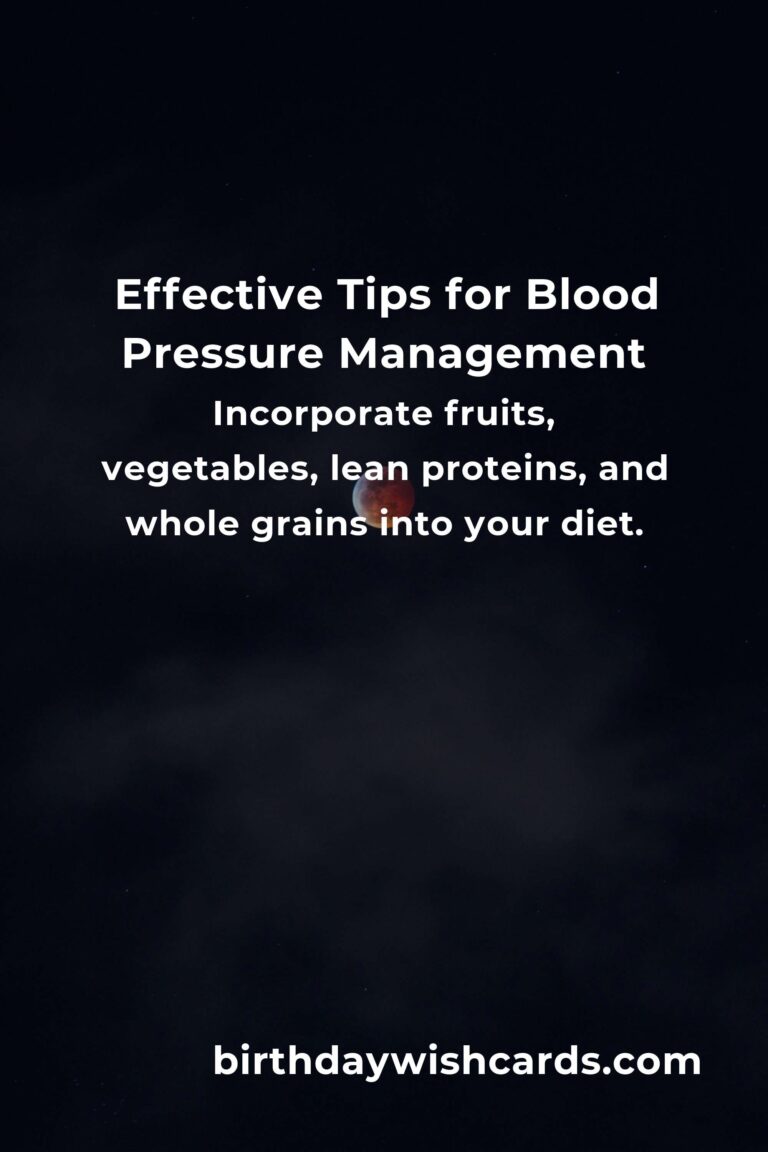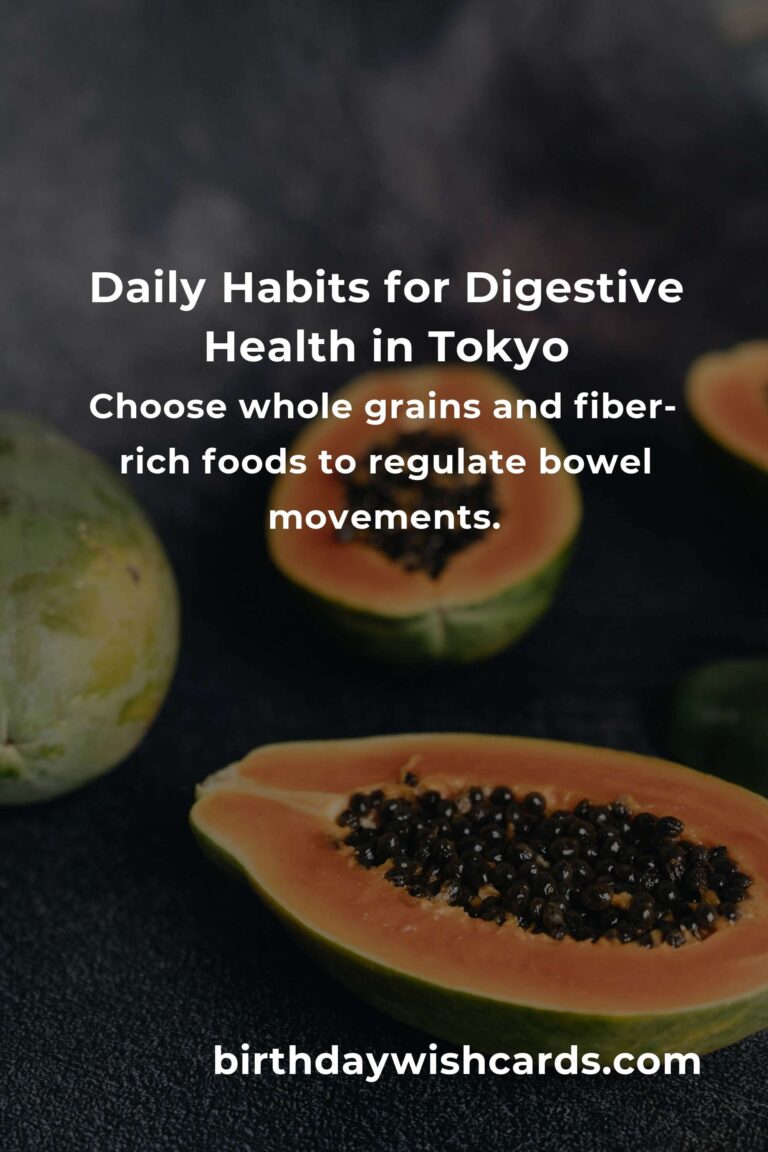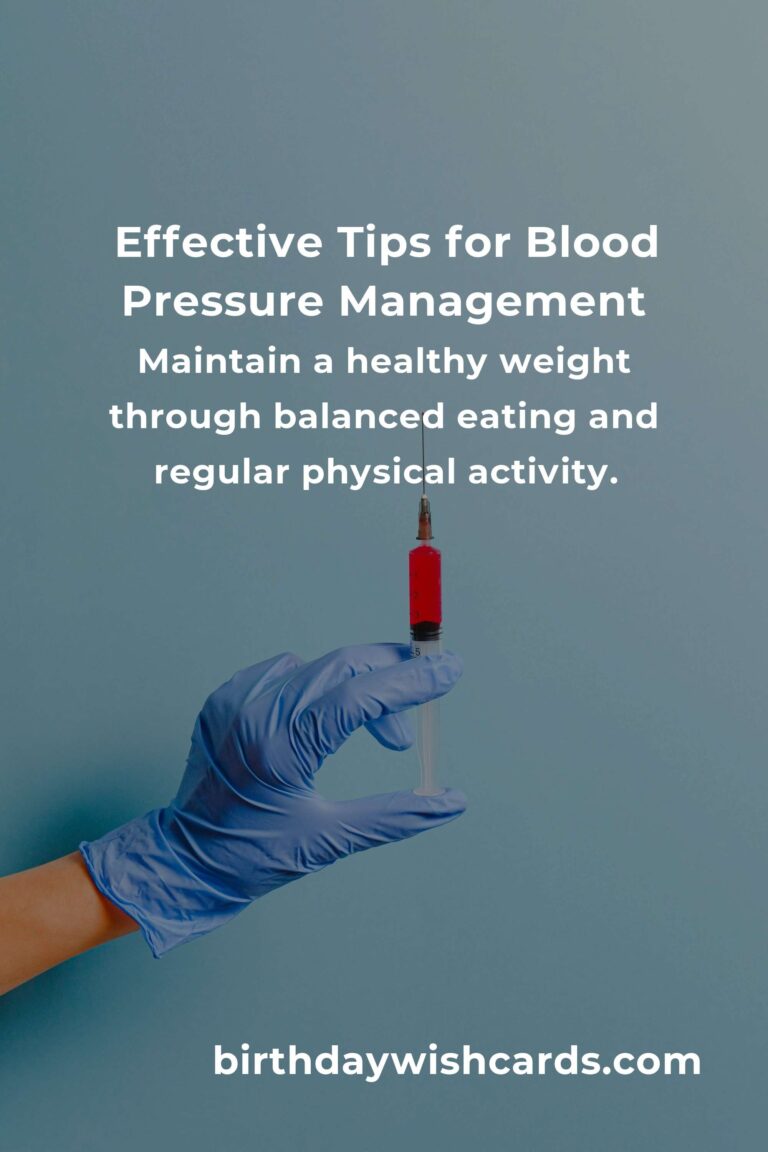
As we age, maintaining a healthy blood pressure becomes increasingly important, especially when we reach our 50s. High blood pressure, or hypertension, is a common condition that can lead to serious health problems if not managed properly. Here, we provide 41 practical tips that can help you manage and maintain healthy blood pressure levels in your 50s.
1. Monitor Your Blood Pressure Regularly
Keeping track of your blood pressure is crucial. Regular monitoring can help you spot any changes early and take action quickly. Consider investing in a home blood pressure monitor.
2. Maintain a Healthy Weight
Being overweight can increase your risk of high blood pressure. Aim to maintain a healthy weight through balanced eating and regular physical activity.
3. Follow a Heart-Healthy Diet
Incorporate fruits, vegetables, lean proteins, and whole grains into your diet. Limit saturated fats, cholesterol, and sodium intake to support heart health.
4. Reduce Sodium Intake
Excess sodium can raise blood pressure. Try to limit your salt intake and opt for herbs and spices for flavor.
5. Exercise Regularly
Aim for at least 150 minutes of moderate aerobic activity or 75 minutes of vigorous activity each week. Physical activity helps lower blood pressure and boosts heart health.
6. Limit Alcohol Consumption
Drinking alcohol in moderation is key. Excessive drinking can raise blood pressure levels.
7. Quit Smoking
Smoking damages blood vessels and raises blood pressure. Quitting smoking can improve heart health and lower blood pressure.
8. Manage Stress
Chronic stress may contribute to high blood pressure. Practice stress-reducing techniques such as meditation, yoga, or deep-breathing exercises.
9. Get Enough Sleep
Aim for 7-9 hours of sleep per night. Poor sleep quality can negatively impact your blood pressure and overall health.
10. Limit Caffeine
Caffeine can cause a temporary spike in blood pressure. Monitor your caffeine intake and avoid excessive consumption.
11. Stay Hydrated
Drinking plenty of water helps maintain a healthy blood pressure and supports overall bodily functions.
12. Eat Potassium-Rich Foods
Potassium can help balance sodium levels and reduce blood pressure. Include foods like bananas, spinach, and sweet potatoes in your diet.
13. Consider the DASH Diet
The Dietary Approaches to Stop Hypertension (DASH) diet is designed to lower blood pressure and includes a variety of nutrient-rich foods.
14. Limit Processed Foods
Many processed foods are high in sodium and unhealthy fats, contributing to high blood pressure. Opt for fresh, whole foods instead.
15. Reduce Sugar Intake
High sugar consumption can lead to weight gain and increased blood pressure. Limit sugary foods and beverages.
16. Incorporate Omega-3 Fatty Acids
Omega-3s, found in fish and flaxseeds, can help lower blood pressure and improve heart health.
17. Use Healthy Cooking Oils
Opt for olive or canola oil instead of butter or lard for cooking to support heart health.
18. Practice Mindfulness
Mindfulness practices can help reduce stress and support healthy blood pressure levels.
19. Check Your Medications
Some medications can raise blood pressure. Consult your doctor if you suspect your medication may be affecting your blood pressure.
20. Limit Red Meat Consumption
Eating less red meat can reduce saturated fat intake and support heart health.
21. Avoid Trans Fats
Trans fats can increase cholesterol levels and blood pressure. Check labels and avoid foods with trans fats.
22. Eat More Fiber
Fiber-rich foods can support heart health and help maintain healthy blood pressure levels.
23. Stay Active Throughout the Day
Avoid prolonged periods of inactivity. Try to move around regularly, even if it’s just a short walk.
24. Limit Stressful Situations
Identify stressors in your life and work to minimize or manage them.
25. Consider Herbal Supplements
Some herbal supplements, like hibiscus or garlic, may help lower blood pressure. Consult with a healthcare provider before use.
26. Practice Deep Breathing
Deep breathing exercises can help calm your mind and body, potentially lowering blood pressure.
27. Engage in Relaxation Techniques
Activities like yoga, tai chi, or meditation can reduce stress and support healthy blood pressure.
28. Avoid Excessive Screen Time
Limit screen time, especially before bed, to promote better sleep and reduce stress.
29. Monitor Your Cholesterol
High cholesterol can affect blood pressure. Keep track of your cholesterol levels and make dietary adjustments as needed.
30. Stay Compliant with Medication
If prescribed blood pressure medication, take it as directed by your healthcare provider.
31. Increase Antioxidant Intake
Antioxidants can support cardiovascular health. Include foods like berries, nuts, and dark chocolate in your diet.
32. Limit High-Calorie Snacks
Choose healthier snack options like fruits or nuts to maintain a healthy weight and blood pressure.
33. Avoid Excessive Eating Out
Restaurant meals can be high in sodium and unhealthy fats. Cook at home more often to control ingredients and portion sizes.
34. Seek Support
Join support groups or engage with friends and family for emotional support and encouragement in maintaining a healthy lifestyle.
35. Be Mindful of Portion Sizes
Controlling portion sizes can help manage weight and blood pressure effectively.
36. Include Plant-Based Proteins
Incorporating beans, lentils, and tofu into your diet can reduce the need for high-sodium animal proteins.
37. Engage in Regular Check-Ups
Regular visits to your healthcare provider can help monitor your overall health and address any concerns early.
38. Educate Yourself on Hypertension
Understanding the risks and management strategies for hypertension can empower you to make informed health decisions.
39. Avoid Binge Drinking
Excessive alcohol consumption can raise blood pressure. Drink moderately if you choose to consume alcohol.
40. Incorporate Flavonoids
Flavonoids, found in foods like tea and citrus fruits, may help lower blood pressure and improve heart health.
41. Foster a Positive Outlook
A positive attitude can reduce stress and encourage healthy lifestyle choices, contributing to better blood pressure management.
By incorporating these tips into your daily routine, you can take control of your blood pressure and promote a healthier lifestyle well into your 50s and beyond.
Regular monitoring can help you spot any changes early and take action quickly.
Maintain a healthy weight through balanced eating and regular physical activity.
Incorporate fruits, vegetables, lean proteins, and whole grains into your diet.
Exercise regularly to help lower blood pressure and boost heart health.
Practice stress-reducing techniques such as meditation, yoga, or deep-breathing exercises.
#BloodPressure #HealthyLifestyle #HeartHealth #Over50 #Wellness


